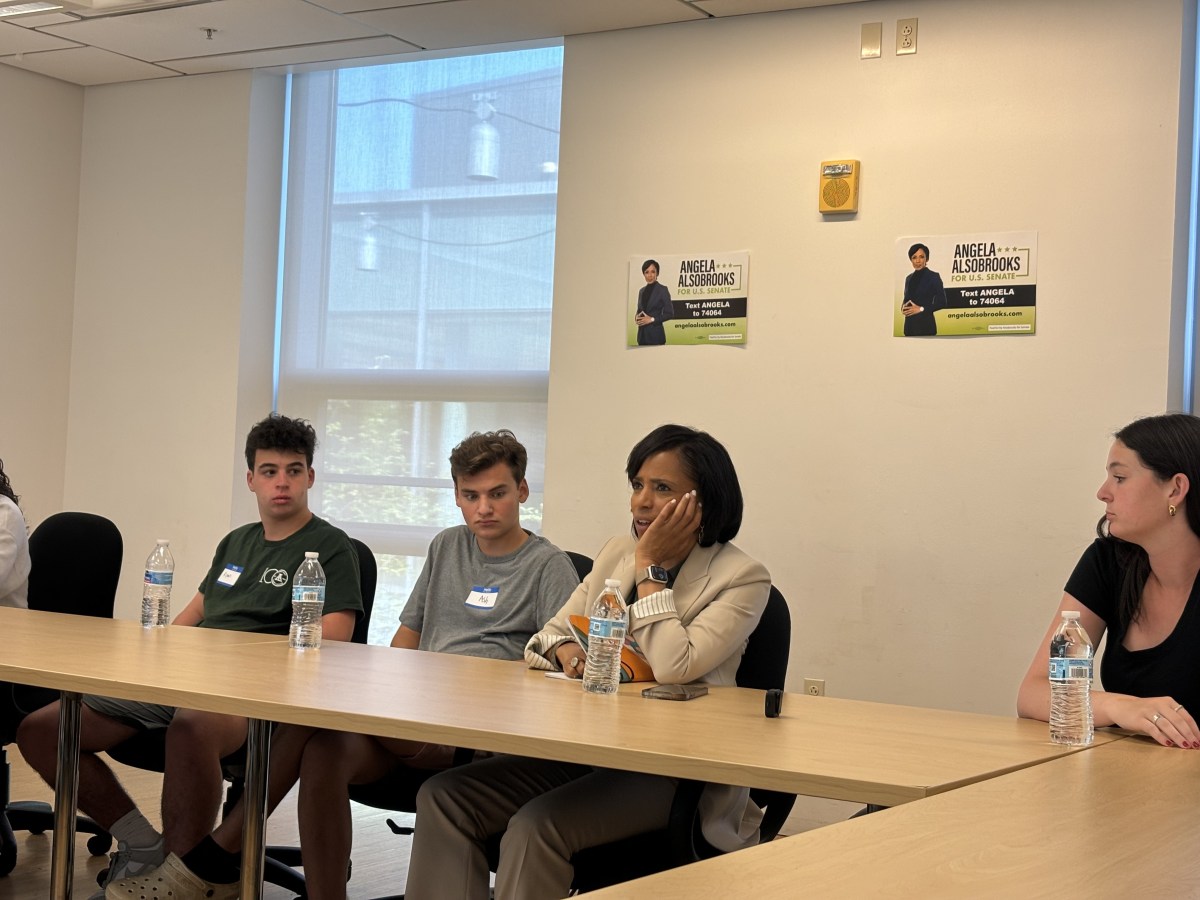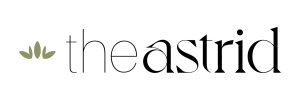Prince George’s County Executive Angela Alsobrooks wasn’t seeking the input of voters at this week’s roundtable discussion in Silver Spring–instead she says she wanted to hear from a group of students about the impact of antisemitism on their lives.
A dozen Jewish teens, gathered by state Del. Jared Solomon (D-Dist. 18), met with the Democratic nominee for U.S. Senate at the Silver Spring Civic Center on Wednesday. Alsobrooks is facing Republican challenger and former Gov. Larry Hogan in the Nov. 5 general election.
The teens represented a mix of students from Montgomery County Public Schools (MCPS) as well as area private schools. Solomon, who chairs the Maryland General Assembly’s Jewish Caucus, said Alsobrooks’ campaign team had asked him to arrange the roundtable.
“I don’t think hate should be a normal part of your experience,” Alsobrooks said after a student said he’d come to expect casual antisemitism. “We need to think of things officials can do.”
Each student shared their experiences with antisemitism both in and out of school. Over the past two years, the county has seen an increase in reported antisemitic incidents. In December, the Montgomery County Anti-Hate Task Force adjusted its recommendations to the County Council following an increase in antisemitic and Islamophobic incidents in the wake of the Israel-Hamas war, which began Oct. 7. In August, vandalism was reported at multiple MCPS schools and an area synagogue.
But many of the students who spoke to Alsobrooks said their experiences of antisemitism weren’t recent, relaying stories from as early as sixth grade.
Eliza Bevington, a senior at Wheaton High School, shared a story of a time another student AirDropped photos of swastikas to her phone. She said that while the school’s administration was sympathetic about her experience and other antisemitic incidents at the school, she felt it became her responsibility to educate her fellow students when she was asked by an administrator to create a presentation about antisemitism. While she said she was willing to do it, she says she would’ve liked more support.
“There were no support systems. There was no further education done,” Bevington said. “It really falls on the Jewish students.”
Gabby Kux, a student at Walt Whitman High School in Bethesda, shared similar experiences.
“It’s kind of traumatic having to be the one to report something that is making you a victim … and then you’re the one that has to go through the process of making it better,” said Kux, who is the vice president of her school’s Jewish Student Union.
However, Kux added that she has also felt empowered by her school’s leadership to have conversations with fellow students about antisemitism. The Jewish Student Union at Whitman partnered with the Muslim Student Association to host a town hall to discuss emotions students were experiencing after the Oct. 7 Hamas attack.
“No one had had a space to talk about it. No one felt comfortable talking about it. I felt very isolated, so we hosted this forum. We brought in an imam and a rabbi, and they shared their perspectives and it was completely apolitical,” said Marisa Janger, the president of Whitman’s Jewish Student Union. “I think the support we had from [the school’s] administration during that time, promoting interfaith relations and that kind of conversation, was just the most productive thing we’ve done.”
Maya Seligman, a sophomore at Richard Montgomery High School in Rockville, said she wished students were provided with more education about the Holocaust.
“This is a complex issue. … I think a lot of what really needs to happen is a lot of big systemic change, which is hard, and I understand that,” Seligman said. “But I think to start, there needs to be, to some level, some benchmark to establish that these kids know what the Holocaust was.”
Solomon commended the students for sharing their experiences.
“I think some of our schools are better than others. We’re really trying at the local and state level to fix that, but we wanted to hear straight from you all,” he told the students.
Alsobrooks said she agreed with the students that education was important in addressing antisemitic incidents. She said she believes adults are teaching hate to their children and that “the younger generation will correct this.”
“Our education and understanding the experiences of other people is important to all of us to make us stronger and more understanding of each other,” Alsobrooks said.
She told reporters after the event that she wanted to talk to the students because she “loves kids” and feels their insights are important.
“The children have had the keenest things to say,” Alsobrooks said. “You can’t represent people you don’t understand. I have to represent kids, whether they can vote or not. I represent their parents, but I also represent them.”
Hogan has also met with Montgomery County Jews during his campaign. He spoke at an event hosted by the Jewish Community Relations Council of Greater Washington (JCRC) at a synagogue in Potomac in March. Alsobrooks spoke at a similar JCRC-sponsored event in April. “The Jewish community–I think they’ve had a specific, unique experience. And I think it’s important that to represent people, you have to understand what that experience is,” Alsobrooks said. “So I’ve spent a lot of time meeting, but I’ve also spent a lot of time



